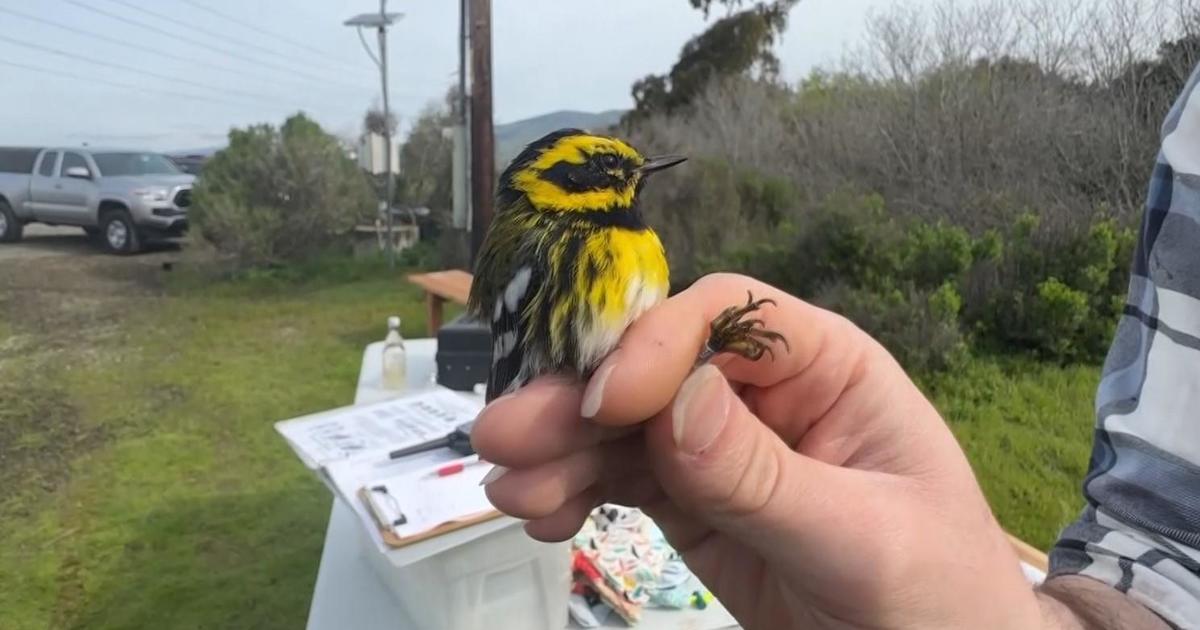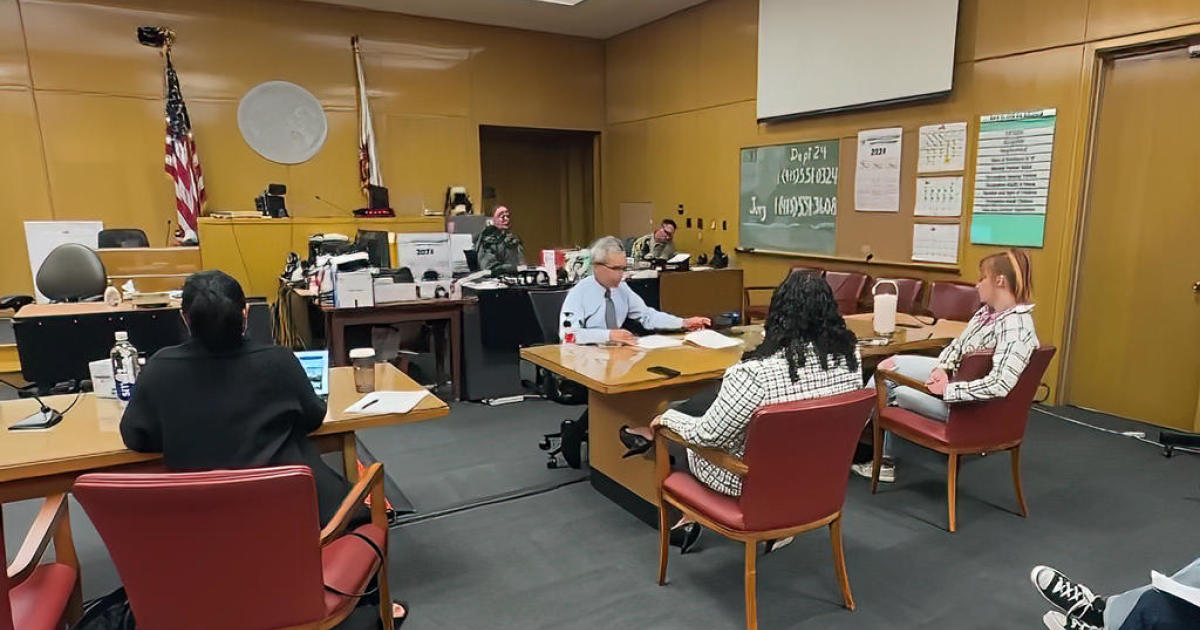Mystery Disease Claims 12 Family Members; Survivors Push Awareness Of Rare Disorder
by Allen Martin and Molly McCrea
TRACY, San Joaquin County (KPIX 5) -- A Northern California family plagued with a mystery disease that claimed the lives of a dozen relatives finally has answers after specialists at the renowned Mayo Clinic recognized it as a rare hereditary disorder. Now the family is hoping to turn its legacy of heartache into hope for others with the disease.
For years, Tracy resident Rachelle Dixon lived with the genetic version of Russian Roulette. She had a 50-50 chance of developing the terrifying, degenerative illness that took so many members of her family, including her mother, brother and sister.
Rachelle Dixon and her father, Earl Lindgren of Tracy, recently spoke about the years being in the middle of a medical mystery.
"From a very young age, I knew that there was something," recalled Dixon. When she was a young girl, Dixon heard talk about a "family disease."
"When I asked, 'Where's my grandfather?' Oh 'He passed away. He had the 'family disease,'" Dixon recalled her mom telling her. Dixon's great-grandfather and grandfather on her mother's side also died from it.
The symptoms: hearing loss, nerve damage in the feet, and dementia that would all progressively worsen. Those in the family who were afflicted typically died in their 40s and 50s. No one knew what was causing it, or who would get it next.
"It was a genetic disease," said Lindgren. It was unknown. Nobody knew anything about it."
In the 1980s, when Dixon was a teenager, both her mother and her mother's sister developed it. Dixon's mother, Sandy, was diagnosed with hearing loss and nerve damage. The disease turned a once-vibrant woman and professional nurse into someone who was bedridden, unable to speak, feed herself or interact with anyone.
The family turned to the major medical centers in the Bay Area for help, but got nowhere. There was no diagnostic test for a mystery illness, no support groups to turn to for help, and no medical advice on what to do next. "The only advice they gave us was don't have any more children," said Lindgren.
Lindgren took care of his wife Sandy until the day she died, often improvising on how to make sure she was comfortable. "I made a promise that I was going to take care of this individual no matter what," he said.
But the disease didn't end with Dixon's mother. It continued to wreak havoc on her family. After Dixon's mother passed away, two of her four siblings began to show symptoms; first Lisa, then her younger brother, David, became ill.
The family noticed both siblings had hearing loss, and neuropathy in their feet. Rachelle took care of Lisa. Her father took care of David. Because of their mother's illness and decline, the whole family braced themselves for what was going to happen next with their beloved siblings.
Rachelle started getting her hearing tested. It was an ordeal and very stressful knowing what any hearing loss might suggest. Her doctors knew nothing about the mystery illness; and she had to convince them to let her have a hearing test.
"I knew that if at any point I was starting to show some of these symptoms, I knew that the end was going to come quicker than others and I knew it was going to be an incredibly ugly end," recalled Rachelle, her eyes filling up with tears.
Finally, in 2013, Lisa and David underwent new genetic testing. The answers came from the work down by the doctors and experts at the Mayo Clinic in Rochester, Minnesota. The family found out they were not so alone.
"It brought me to tears because it was finally an answer," recalled Dixon.
Their "family disease" was first identified by neurology specialist Dr. Peter Dyck, who directs the Mayo Clinic's Peripheral Nerve Research Laboratory. In 1995, he studied two other families afflicted with it. Dyck called it hereditary sensory and autonomic neuropathy type 1E (HSAN 1E).
"The disorder is directly inherited from a parent to approximately half the children," said Dyck.
It turned out that while the disease is ultra-rare, Dixon's family is not alone. "Once the gene was discovered, we realized it was a lot more common than we initially thought," said Dr. Christopher Klein of the Mayo Clinic. "There are literally hundreds of families throughout the world who are affected by this disorder."
Klein is also a neurology specialist and the world expert on what is afflicting Dixon's family. Klein's lab discovered their mutation as well as others on a gene called DNMT. He said there is a spectrum of disorders that includes Dixon's family disease and he calls this spectrum "the DNMT 1 complex disease."
"This particular gene is very interesting," said Klein.
The primary mechanism of the gene involves how our cells divide. Klein said every time DNA divides, a special enzyme comes in to make sure the cell divides faithfully. It involves methylation, a biochemical process that we lose as we grow older. Families with DNMT 1 complex diseases who test for one of several mutations on the gene appear to lose the methylation ability earlier in life.
Klein believes unraveling the mysteries of this mutation may shed light on other neurodegenerative conditions, such as Alzheimer's and Parkinson's. "In some ways it's a premature aging but interestingly it selectively effects the nervous system," said Klein.
Dixon's brother and sister ultimately did not survive the family disease. Dixon, along with her two surviving siblings have taken the genetic test and discovered they do not carry the disease-causing mutation.
Now her family has created a special website to help guide newly-diagnosed families. Since they had no one to help them care for their loved ones, the family hopes to share their experiences and expertise. They call their effort the HSAN1E Society.
Before he died, Dixon's brother donated his body and brain to Klein and his team in hopes of speeding up the research. Dixon also traveled to Washington, DC to lobby lawmakers and public health experts to increase funding to study the disorder. HSAN 1E gets a tiny sliver of research money and needs more funding to make an impact.
"Oh, this is an amazing family," remarked Klein, in reaction to the family's efforts. After losing 12 loved ones to the rare disease, their goal is to turn their tragedy into hope, and to find a treatment, even a cure.



